Violinist finds Gallic charm with exhumed Saint-Saëns in CSO debut
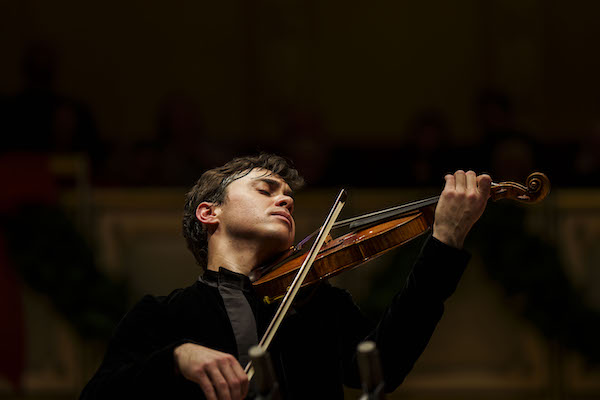
Charm is not a quality in vast supply these days culturally, socially or otherwise.
The Chicago Symphony Orchestra’s penultimate program of the year, led by Semyon Bychkov Thursday night, had an abundant supply of it, courtesy of Benjamin Beilman in his CSO subscription debut.
The American violinist was subbing for the originally scheduled Renaud Capuçon, who bowed out of this week’s concerts due to illness. Despite the unsettled circumstances, Beilman triumphed in the evening’s performance of Camille Saint-Saëns’ Violin Concerto No. 3.
Beilman, 34, has given local notice of his fiddle bona fides in recent years. He opened the Grant Park Music Festival season in 2019 and was an eloquent soloist in the world premiere of In Silence, Elizabeth Ogonek’s excellent chamber concerto. Last year he became one of the youngest artists ever to be appointed to the faculty of the Curtis Institute of Music.
Saint-Saëns’ Op. 61 may not be the most profound music ever written but, like all of the French composer’s work, it is consummately crafted and full of melodic appeal. Amazingly, this once-repertory mainstay hasn’t been programmed by the CSO since assistant concertmaster David Taylor delivered a bravura performance 32 years ago.
Beilman’s violin tone is light and on the slender side. If not the most blazingly virtuosic rendering one will ever hear, his performance scored in a more intimate and communicative style. After a firmly pointed statement of the opening movement’s main theme, the soloist brought a melting legato and liquid phrasing to the lyrical second subject.
Saint-Saëns’ chanson-like melody for the central Andantino was floated by Beilman with just the right degree of lilting Gallic charm. The movement’s coda was taken at something of a crawl, but aided by fine oboe work from William Welter.
Beilman showed technical ease in the quasi-cadenza that opens the finale. The soloist brought a light, dancing diablerie to the forthright main theme, shaded delicacy in the more tender sections, and rounded off the performance with stylish solo brilliance. Bychkov led a supportive if occasionally heavy-footed accompaniment.
The repeated ovations brought the soloist back out for an encore. Beilman offered the Largo from Bach’s Solo Violin Sonata No. 3 in C major, rendered with plaintive delicacy.
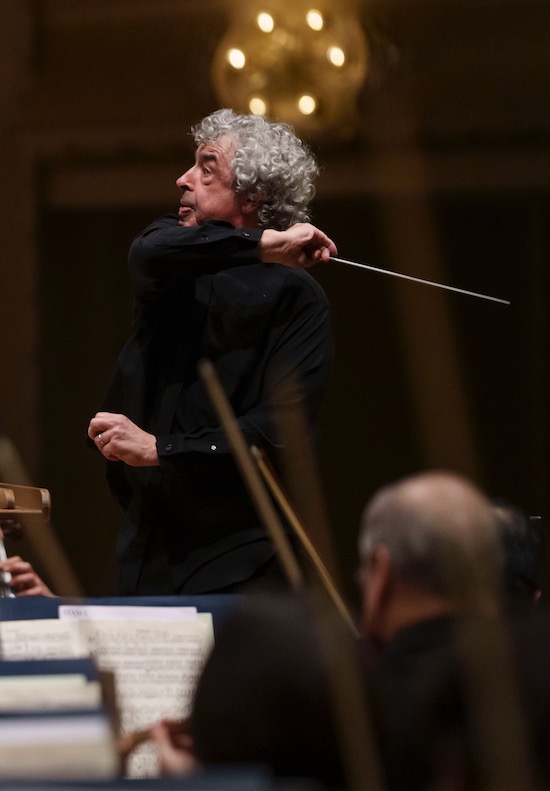
The evening led off with Dvořák’s Carnival Overture. Bychkov drew a spirited reading that did not play to the galleries, hewing to an initial simple Allegro, as marked. In the middle section, solos by the winds and concertmaster Robert Chen neatly contrasted the framing hurly-burly with nocturnal languor, and Bychkov gave the reprise of the main theme an extra burst of adrenaline in the final bars.
Christmas came 11 days early for Chicago audiences with the evening’s concluding work, Brahms’ Symphony No. 4. Stephen Williamson returned for his first CSO appearance since August, after being on extended leave following surgery. The CSO’s rock star principal clarinet performed as if he had never been away—let alone for four months—playing with typical fluency, blending and individual character.
Thursday night’s Brahms was one of those performances that started in unexceptional fashion but grew in polish, commitment and intensity with each successive movement. The opening Allegro went solidly, with Bychkov’s flexible handling of tempo shifts artfully done. Still, the craggy drama felt rather soft-focus with sonorities lacking ballast and weight. The horn blaring didn’t help and unkempt ensemble in the section persisted nearly throughout.
That apart, the performance began to find its footing in the Andante as Brahms’ music moves from E minor into the major. Bychkov skillfully directed the ebb and flow of the slow movement, building the emotional intensity in one of Brahms’ most lyrical outpourings. En masse and by section, the strings played superbly with richly burnished tone and heart-easing warmth. The third movement was aptly vigorous and incisive.
Bychkov and the musicians rose to the concluding passacaglia in supreme style. The variations unfolded with inexorable momentum and were effectively characterized, highlighted by a searching yet unsentimental flute solo by Stefán Ragnar Höskuldsson and a majestic, seamlessly blended trio of trombones (horns, take note). Bychkov built the drama to a tough, resounding peak, the final chords shutting the door hard on a note of implacable defiance.
The program will be repeated 1:30 p.m. Friday and 7:30 p.m. Saturday. cso.org
Posted in Performances
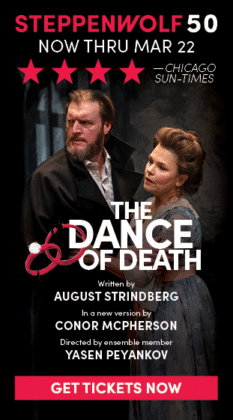
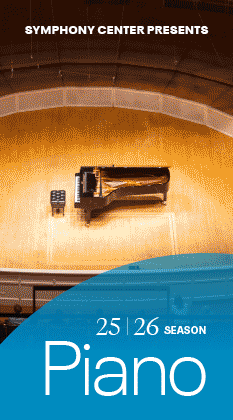
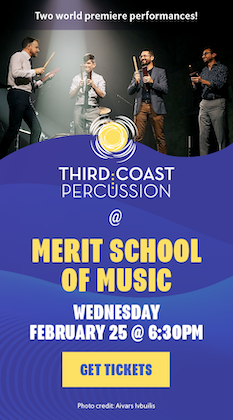
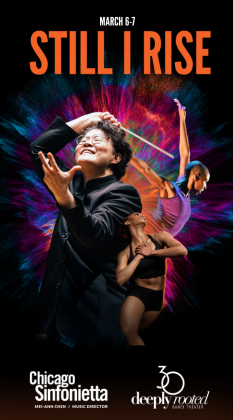
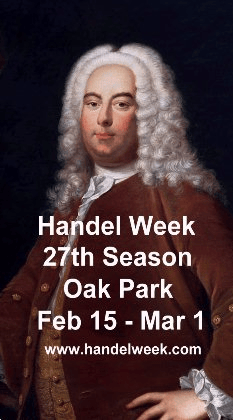
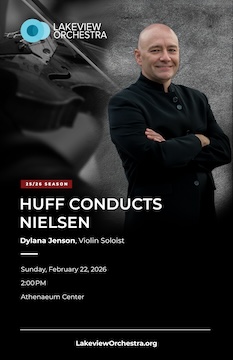

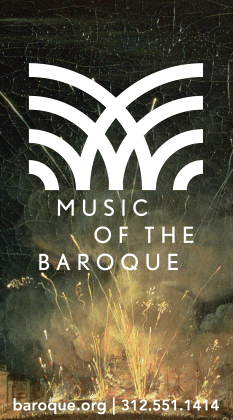
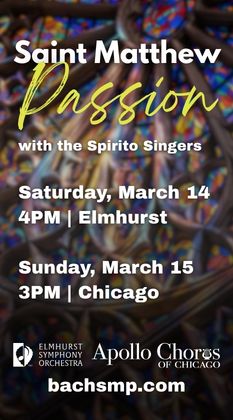
Posted Dec 15, 2023 at 11:43 am by Mason
Thank you for the review, Mr. Johnson. For me, the first movement of Brahms was nearly ruined by the horn section. Except for that, overall it was a great performance.
Posted Dec 15, 2023 at 2:50 pm by Brad
It’s somewhat shocking what’s happened to the horn section since Cooper was disgracefully shown the door. I figured there would be a shift in style and sound with Dr. Almond arriving as the new principal, but why their musical foundation has broken like this is beyond me.
Posted Dec 15, 2023 at 6:22 pm by Roger
Attended the Friday matinee performance. In the Brahms symphony, the horn section did not improve after a good night’s sleep. Why Mr. Cooper did not attain tenure is beyond me. Must have disliked pasta?
Posted Dec 15, 2023 at 6:35 pm by Moselle Eugen
Benjamin Beilman is an underrated violinist – hopefully he will make more commercial recordings. As for Semyon Bychkov, like most “big name” conductors, he is a bit overrated.
Posted Dec 15, 2023 at 8:31 pm by Donuts 4 All
Some of us regular concert goers were surprised that Almond got the job after two weeks of rather unremarkable trials under Muti. We are even more surprised that Gingrich had resigned from his associate principal chair to begin the season.
Suffice to say the morale of the orchestra was low in September; in addition to the vacant MD position, the orchestra was losing leaders faster than they can get them. I hope the European tour will help them find their footing and regain their playing form again.
Posted Dec 15, 2023 at 9:00 pm by Gerald
I attended the Friday matinee. The horns were fine
Posted Dec 16, 2023 at 2:20 pm by Ken Park
Attended Thursday night concert. I agree with the review, but for me it was a rare chance to listen to Brahms no 4 live, and it is my favorite symphony. This piece is the most underrated symphony of all time. If you listen to Beethoven’s 5 or 9, you appreciate the music, but if you listen to Brahms 4 or 2, you appreciate the life. Much much deeper in my opinion.
As for Benjamin Beilman, he is a talented violinist with great passion. He was more than ready for this opportunity. I just wish he had a better violin. He definitely needs a violin with more colorful sound, even considering the poor acoustic of CSO hall.
Posted Dec 16, 2023 at 4:39 pm by niloiv
Thursday was my first CSO this season (attended the Staatskapelle Berlin earlier). Agreed that the horn section had a pretty rough night.
Never heard of Beilman before but he turned out to be a pleasant surprise. Hope we see him more in coming seasons in Chicago.
Posted Dec 16, 2023 at 7:48 pm by Rosalind Britton
I am relieved to read your comment regarding the blaring horns, and might almost say bleating, in the Brahms 1st movement. I have heard this piece many times here, Los Angeles and in London, and never heard such an unbalance. I hope it is resolved, for Brahms must have well balanced horns in all his symphonies.
The performance by Benjamin Beilman was beautiful and elegant.
Posted Dec 16, 2023 at 10:22 pm by Robert Eisenberg
For whatever it was worth
a) horns Saturday night were in perfect ensemble
b) the third and fourth horns were blaring in my lower balcony right seats. This was more likely a problem of hot spot acoustics than playing.
We should not take the incredible string ensemble and intonation for granted. Listen to some YOUTUBE recordings of other orchestrqs and you will hear what I mean.
Posted Dec 17, 2023 at 12:07 am by Charles Amenta III MD
I guess it really depends on the performance because the horns were at the top of their game on Saturday. And the balances were I sat (Row C center-right aisle upper balcony) were definitely favoring the horns.
A few quibbles apart, this was really fine Brahms, with great intensity when called for and great quiet, sustaining flow when not. The great CSO was not just phoning this in. People were saying that the CSO strings can’t compare with the Berlin Staastskapelle, but it would be hard to make that statement after tonight’s concert. Surely Bychkov deserves a lot of credit.
What a J Brahms ‘festival’ I’ve experienced!: Song of Destiny (Harding), Symphonies 3 and 1 (Berlin Staatskapelle Hrůša); MTT Schoenberg orchestration G-minor Quartet; Violin Concerto (Hahn); and now Symphony No.4. These were all exceptional.
Posted Dec 17, 2023 at 1:29 pm by Gabriel
Saturday evening from my seat near the front of the lower balcony, I could see Beilman and just behind him, David Taylor, (the most recent person to perform this violin concerto with CSO in the 90’s) and the look on David Taylor’s face towards the end of each movement was imho a mixture of approval and awe of the soloist. Perhaps he was even somewhat nostalgic of his own experience with the piece.
I also thought Beilman needs a superior violin, and I’m relieved to see someone else thought so as well.
Posted Dec 17, 2023 at 7:17 pm by ML
I attended both Thursday and Saturday concerts (could not make it Friday afternoon). On Thursday, horns indeed had all sorts of problems in Brahms, as they did in most Thursday concerts thus far in the season.
On Saturday, horns had no problems *at all*, except that they played too loud in the first movement of Brahms, thereby making the middle section too thick. This is the first time ever I applauded the new principal horn.